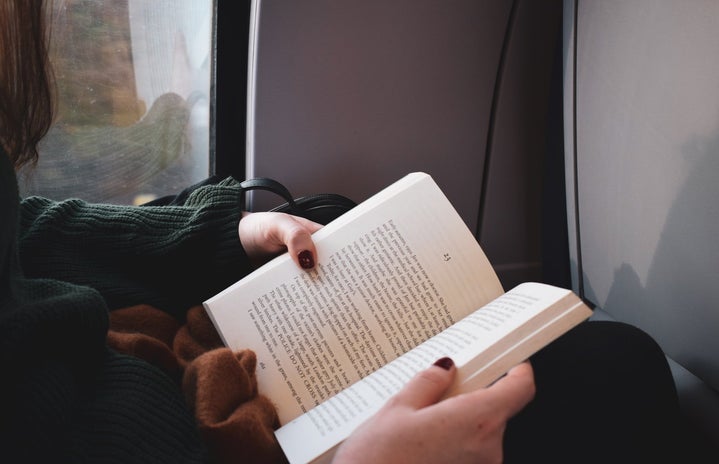I am lucky enough to be in contact with Mary Marolla from Abrams Publishing and she graciously gave me the opportunity to read My Sister’s Big Fat Indian Wedding by Sajni Patel before its publication date!
Here is some background on the book:
Zurika Damani is a naturally gifted violinist with a particular love for hip hop beats. After being rejected by Juilliard, Zuri’s last hope is a contest judged by a panel of top-tier college scouts. The only problem? This coveted competition takes place during Zuri’s sister’s extravagant wedding week. And Zuri has already been warned that she is not to miss a single moment. The story’s rich cultural backdrop separates it from other rom-coms, and sisterhood and familial relationships form the bones of this relatable and addictive read.
I finished the book and came up with some questions for Sajni regarding her writing process as well as the novel itself. It was great to hear from her and the responses she shared gave me a better understanding of the book and the message it conveys.
Keep reading to get the inside scoop on My Sister’s Big Fat Indian Wedding by Sajni Patel!
1. One of the first things I noticed while reading My Sister’s Big Fat Indian Wedding was the chapter headlines, what made you decide to style them almost as a count down to the big wedding? Was this originally your first idea for organizing your novel?
SP: Because there are so many festivities happening, plus a competition, my team suggested a countdown to help keep the timeline straight and give readers an idea of how close we are to the big wedding, and thus, the big competition.
2. This next question kind of bounces off the first but, why did you decide to have the book span about 9 days or so? This novel realistically moves very fast but it in no way feels rushed or like it is lacking anything. How did you manage this and was it a struggle?
SP: The book is inspired by my brother’s wedding. I essentially took all the festivities, major traditions, and countless things to do that had spanned a week and worked in the plot. Naveen is visiting from out of country and the wedding week falls on spring break. I always knew the story was going to span a short time, and had a lot to pack in, but I had the backbone of events to create a body. I went from there. Of course, there were minor revisions of shuffling a few scenes around, but it wasn’t a struggle at all.
3. At first, I didn’t know what to think of Naveen, but I quickly found myself being as intrigued by his musical charm as Zurika. When dreaming up the characters did you know where you wanted these two to end up?
SP: Often times, I know the ending before anything else. I knew these characters would have their own lives and ambitions and this wasn’t going to be a story of anyone sacrificing anything for someone else or giving up on dreams. I knew where each character would land.
4. When forming the family dynamic of the Damani’s did you model it at all after your own family? I know the wedding was lightly modeled after your brother’s but were the characters mirrored after anyone? I know when writing it is difficult not to include pieces of our own history in characters and plot lines. The characters felt all too real and the interactions were beautifully crafted and used to propel the story in an amazing direction–it’s hard to believe they are all made-up characters and I think a part of me wants to think they are real.
SP: A lot of the characters were inspired by real people or a combination of people, but I don’t have sisters, so a lot of the family dynamics are fictional.
5. This question connects to the one above but I know that sometimes in books supporting characters kind of get lost in the shuffle. How did you prevent this from happening? Each cousin had their own storyline and easily entered and exited each scene, I found myself following Krish’s character especially. If anything, the actions and personality of the cousins made their parents (Zuri’s aunts and uncles) more tolerable. It was hard at times to sympathize with the aunts and uncles but at the same time, their intentions were good from the beginning and I do think you portrayed the conflicts beautifully.
SP: Because many characters were based on real people, they already stood out with defining traits and purpose. Each character had to carry something for the story. I did cut out one or two who ended up as part of the Krish we see on page.
6. Do you have a favorite scene in the novel? Or any that you particularly worked really hard to get right? My favorite scene has to be when Zuri’s father finally understands and supports her passion for music. The scene is so raw and wonderfully crafted that I found my eyes skipping down the page in excitement.
SP: When Zuri and Naveen are practicing, and then competing, beneath the blossoms at the park was my favorite scene to write.
7. I have not read your other books but in terms of the themes and traditions, I think it is so important for you to continue writing and including these cultural pieces. Did you always know you wanted to write books like these or did it kind of just happen?
SP: I never anticipated writing stories like these. This book came about because my brother’s wedding was so memorable and cinematic, and I had to share it with readers.
8. I was very unfamiliar with the culture and traditions that were in this book but you introduced things in a way that easily let me follow and learn. How did you manage this? Was it difficult to take into account the diversity of your readers?
SP: Readers learn something in every book. Characters have different cultures, jobs, backgrounds, identities, conflicts, etc. It’s all about context, whether it’s an emotion or scenery or plot point. In this case, I tried to make sure concepts and terms were understood in an organic way that flowed with the story.
9. This might be a personal question but while reading your book I couldn’t help but think how proud your family must be of your ability to tell stories. Not only do you include rich details of your cultural traditions but you also do it in a way that feels so effortless. What do they think of your writing? Has this influenced your writing at all, or did it at any point?
SP: I think they like it!
10. I know you are fine-tuning the details of this book release but I have to ask—Do you have any plans for your next big seller? If so, how does it relate in context or theme to My Sister’s Big Fat Indian Wedding?
SP: My next release is a comedic women’s fiction/romcom that’s not centered on Indian culture. My next YA will be…but it’s unannounced so I can’t say much about it other than it’s just as vibrant! Sorry! But, stay tuned! As of now, I have five more books coming out in the next few years, and I’m excited to share them with readers.
I would like to thank Abrams Publishing as well as Mary Marolla for sending me this wonderful book to read. Also, a huge thanks to Sajni Patel for creating such a bright and lively world to get lost in.


